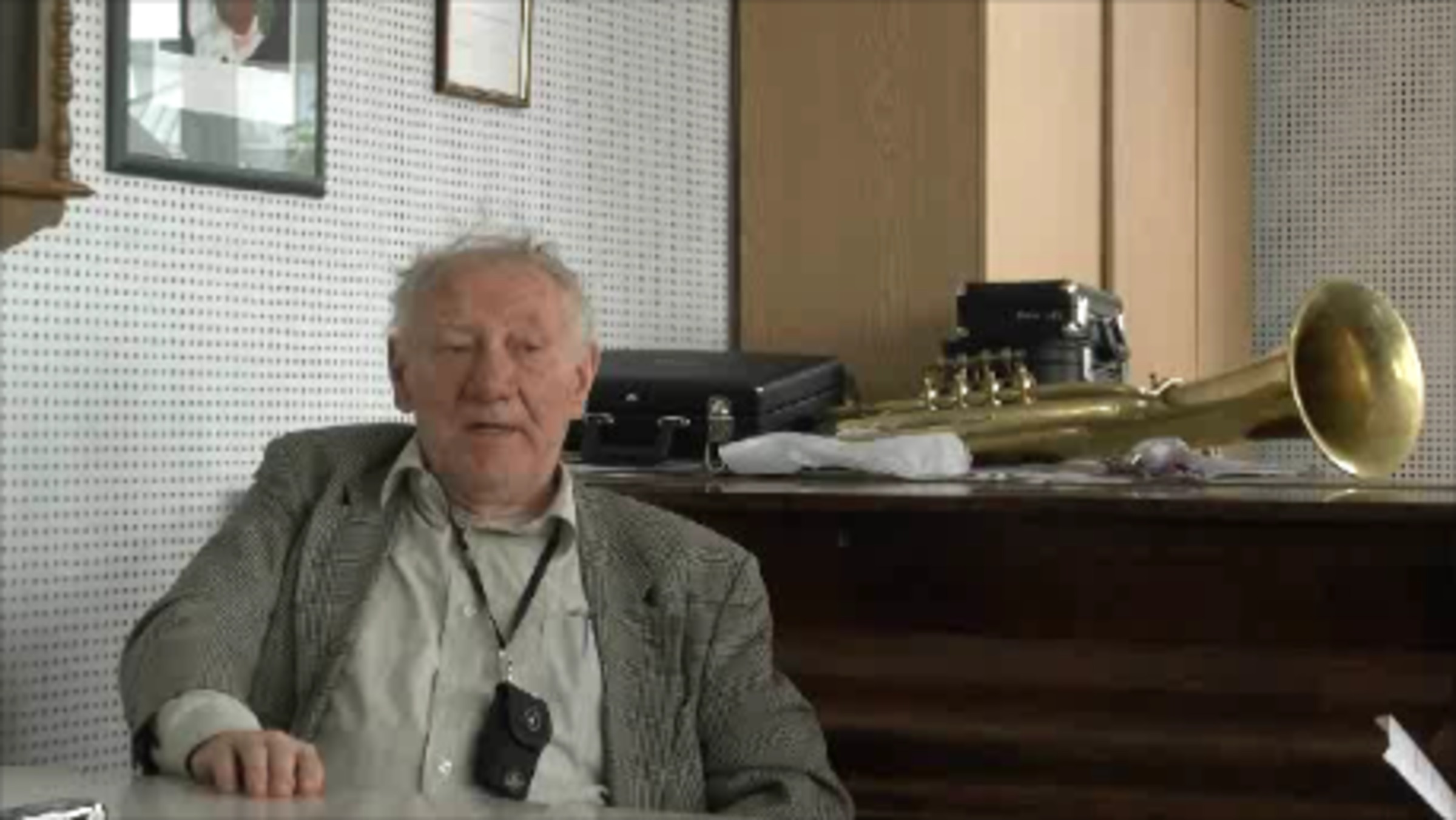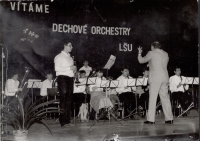There is no life without music. It’s a drug for whoever falls for it. It’s also my case.

Download image
Karel Růžek was born on August 20, 1930 in Kamenná Lhota into an agricultural family. His grandfather used to be a grand piano player in an imperial band, but his desire for a musical profession was thwarted by the need to work on the fields. But perhaps Karel inherited his musical talent from him. Karel’s family was affected by forced collectivization, which the inhabitants of Kamenná Lhota had long resisted, but in the end his father also succumbed and signed the entrance to the agricultural cooperative. Karel longed to study at the conservatory, which he also studied on a merit scholarship, while at the same time taking private trombone lessons with Professor Ušák. He became a professional musician upon joining compulsory military service. After returning from the military service, he began teaching music in Voršilská and founded a wind ensemble, with which he celebrated international success, and many of its members became part of the Philharmonic Orchestra. His interview was recorded as part of the Stories of the 20th Century competition, and at that time Karel, despite his advanced age, was still teaching at the art school in Ledeč nad Sázavou.









